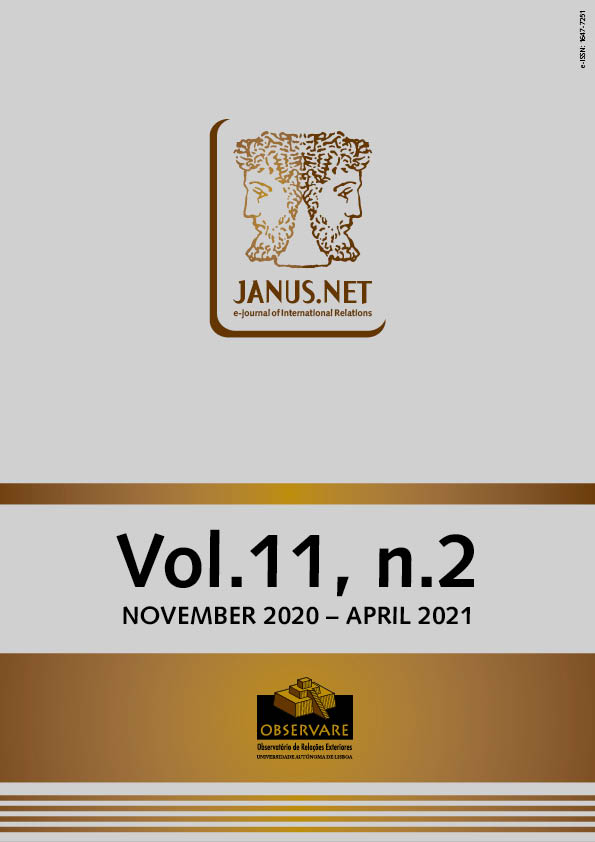Terrorism, violent attacks and political Islam have affected the North Caucasus since the disintegration of the Soviet Union. If in the past the Caucasus Emirate was the leading terrorist organisation in the region since 2014 the Islamic State gained popularity and established the Vilayat Kavkaz (Caucasus Province) as part of the Caliphate exploiting the local critical socioeconomic condition and promoting the jihadist propaganda in the Russian language (i.e. the magazine ‘Istok’) also thanks to the considerable presence of North Caucasian foreign fighters among the ranks of Abu Bakr al-Baghdadi. Although currently the international coalition forces mainly defeated the Islamic State in Syria and Iraq, this organisation still jeopardises the North Caucasus often identified as the most volatile and impoverished area of the Russian Federation characterised by ethnic conflicts, the rise of Salafism, stagnation, and corruption. This study aims at stressing that the Russian government has elaborated a strategy mostly based on special military operations and massive investments in tourism and logistics which can exacerbate more the precarious status quo of the region favouring the dissemination of jihadist propaganda because it does not consider the historical, sociocultural, ethnic, and religious background. The region is not exempt to jihadist propaganda and terrorism and, if the Russian government cannot financially and economically support the regional leaders or will not change its approach, terrorism and political Islam could critically influence the North Caucasus posing a dangerous menace to the stability and security of the Russian Federation and entire Eurasia.
ASSESSMENT OF THE RUSSIAN STRATEGY TO CONTRAST TERRORISM AND JIHADIST PROPAGANDA IN THE NORTH CAUCASUS
»
University of Rome Tor Vergata Department of History, Cultural Heritage, Education and Society
(Italy). Association of Studies, Research and Internationalization in Eurasia and Africa.
Resumo
O terrorismo, os ataques violentos e o islamismo político têm afetado o Norte do Cáucaso desde a desintegração da União Soviética. Se no passado o Emirado do Cáucaso era a principal organização terrorista da região desde 2014, o Estado islâmico ganhou popularidade e estabeleceu o Vilayat Kavkaz (província do Cáucaso) como parte do Califado, explorando a condição socioeconómica crítica local e promovendo a propaganda jihadista em língua russa (ou seja, a revista 'Istok') também graças à presença considerável de combatentes estrangeiros do Cáucaso do Norte entre as fileiras de Abu Bakr al-Baghdadi. Embora atualmente as forças da coligação internacional tenham derrotado principalmente o Estado islâmico na Síria e no Iraque, esta organização ainda compromete o Norte do Cáucaso, frequentemente identificado como a zona mais volátil e empobrecida da Federação Russa, caracterizada por conflitos étnicos, o aumento do salafismo, a estagnação e a corrupção. Este estudo visa salientar que o governo russo elaborou uma estratégia baseada principalmente em operações militares especiais e investimentos maciços no turismo e na logística que podem exacerbar ainda mais o precário status quo da região, favorecendo a difusão da propaganda jihadista porque não considera o contexto histórico, sociocultural, étnico e religioso. A região não está isenta da propaganda jihadista e do terrorismo e, se o governo russo não puder apoiar financeira e economicamente os líderes regionais ou não quiser mudar a sua abordagem, o terrorismo e o islamismo político poderiam influenciar de forma crítica o Cáucaso do Norte, colocando uma perigosa ameaça à estabilidade e segurança da Federação Russa e de toda a Eurásia.
Palavras-chave
Como citar este artigo
Bifolchi, Giuliano (2020). “Assessment of the Russian strategy to contrast terrorism and jihadist propaganda in the North Caucasus”. In Janus.net, e-journal of international relations. Vol. 11, No. 2 Consulted [online] at date of last visit, DOI: https://doi.org/10.26619/1647-7251.11.2.2
Article received on 20 July, 2019 and accepted for publication on 26 February, 2020















